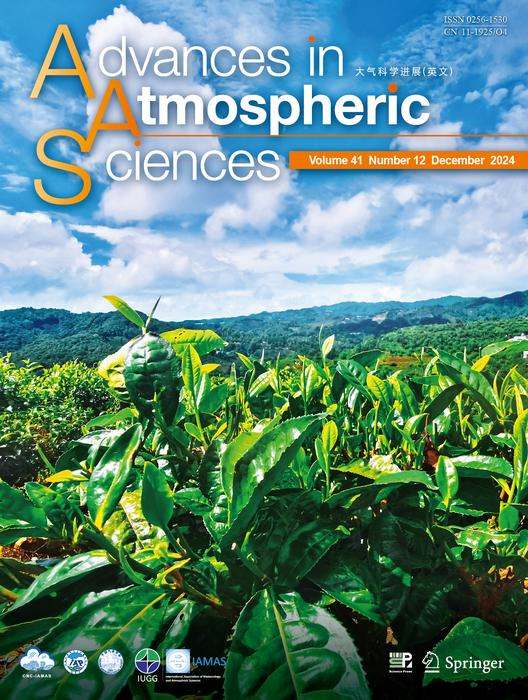The global tea industry, valued in the tens of billions of dollars, is facing increasing pressure from climate change. As both the quality and quantity of tea production are highly sensitive to variations in climate, rising global temperatures and unpredictable weather patterns pose serious challenges.
Addressing these risks has become a priority for scientists and industry stakeholders, leading to the launch of an ambitious collaborative initiative between the UK and China.
The project, titled Tea-CUP (Co-developing Useful Predictions), is designed to deliver actionable climate information, referred to as “climate services,” to help tea farmers and producers adapt to changing environmental conditions.
The initiative, featuring research by UK and Chinese climate scientists and industry experts, was recently detailed in a paper published in the journal Advances in Atmospheric Sciences.

According to the journal’s editor, Professor Zong-Liang Yang from the University of Texas at Austin, the study was selected for the cover issue due to its relevance and potential impact.
“This collaborative effort exemplifies the goals of climate science: delivering climate services that benefit society directly,” said Professor Yang, underscoring the project’s significance in addressing real-world challenges posed by climate variability.
The impacts of climate change are already being felt in key tea-growing regions, with droughts and erratic weather patterns threatening both the livelihoods of farmers and the sustainability of the industry. In particular, the southeastern periphery of the Tibetan Plateau, including the Yunnan province of China – a major tea-producing region – has been increasingly prone to droughts due to the warming of the western Pacific warm pool.
According to Professor Tianjun Zhou, one of the study’s authors, accurate and timely forecasts could help mitigate these impacts.
“For the tea industry, this means that accurate seasonal, daily, and regional forecasts would be invaluable for decision-making,” said Professor Zhou, emphasizing the need for climate predictions that can assist farmers in managing their crops more effectively.
One of the key achievements of the Tea-CUP project has been its focus on co-developing climate services with input from both scientists and local tea producers. This collaborative model ensures that the resulting climate data and forecasts are practical and applicable to the day-to-day challenges faced by those in the tea industry.
“The collaborative approach between the UK and China has demonstrated that integrating scientific knowledge with local expertise has the potential to enhance the resilience of the tea sector to climate variability and change,” said Dr. Stacey New, an applied climate scientist at the UK Met Office and the paper’s first author. She highlighted the importance of developing tailored climate services that can guide adaptation strategies specific to the tea industry.
The project focuses heavily on the region of Yunnan, where tea production is particularly vulnerable to shifts in temperature and precipitation patterns. Recent extreme weather events in the area have led to reductions in yield and quality, directly affecting farmers’ incomes. Through data collection on tea yields, plantation areas, and climate indicators such as temperature and rainfall, the Tea-CUP team has developed models to better understand how these environmental factors interact with tea production.
Professor Shaojuan Li from Yunnan University of Finance and Economics explained that these models have identified critical meteorological indicators affecting tea yield, providing invaluable insights for managing production in a volatile climate.
“In Yunnan, we have collected diverse data on tea yield, plantation area and prices, as well as temperature and precipitation, to build models that reveal the interactions between climate variation and tea production,” Professor Li said, stressing the importance of such predictive tools in guiding tea farmers’ decision-making processes.
While still in its early stages, the climate services developed through Tea-CUP are seen as prototypes that will be refined over time. The team plans to improve the accuracy of subseasonal forecasts – those that provide predictions a few weeks to a month ahead – and further engage with local farmers and industry stakeholders. This engagement is crucial for ensuring that the information generated by the project remains relevant and practical for those on the ground.
“Ultimately, the goal is to support the construction of a climate-resilient tea industry by fostering ongoing cross-cultural knowledge exchange, informing adaptation strategies, and ensuring that climate information is tailored to the needs of tea farmers and other stakeholders,” Dr. New explained.
The Tea-CUP project is being lauded not only for its potential to safeguard the tea industry but also for its broader applicability. Its framework of collaboration between scientific communities and industry stakeholders, as well as its emphasis on user engagement, is seen as a model that could be applied to other regions and industries around the world.
As climate change continues to disrupt industries globally, initiatives like Tea-CUP highlight the importance of science-driven solutions that are both innovative and grounded in local realities. By empowering farmers with reliable climate data, this project offers a pathway toward a more sustainable and resilient future for tea producers in Yunnan and beyond.
Journal Reference:
New, S., Li, S., Zhao, T. et al. ‘Towards a Climate Service for the Tea Industry: A Collaborative Approach between the UK and China‘, Advances in Atmospheric Sciences (2024). DOI: 10.1007/s00376-024-4302-8
Article Source:
Press Release/Material by Institute of Atmospheric Physics | Chinese Academy of Sciences
Featured image credit: Toan Pham | Pexels




